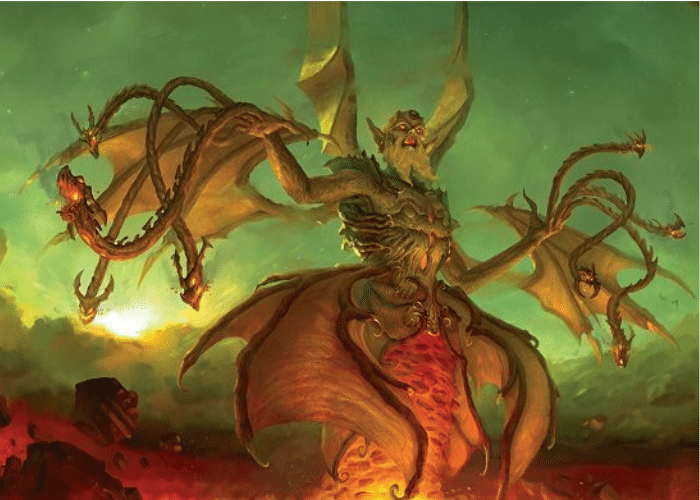Greek and Norse mythology both feature powerful gods, epic battles and quests, but have strengths and weaknesses that differ. Greek mythology’s strengths include the complexity of its characters, heroic quests, and exciting battles. However, it’s limited in diversity, and glorifies strength, power, and masculinity, with little representation of mortals and other cultures. Norse mythology has a rich narrative, fascinating creatures, and strong themes of destiny and fate, but it’s over-emphasised on violence and war, and also has limited representation of women. Individual preference and values determine the preference between the two mythologies, but both continue to be fascinating and influential in shaping Western culture.
Battle of the Titans: The Strengths and Weaknesses of Greek and Norse Mythology
Introduction
Myths are an integral part of human culture, and they reflect our beliefs, values, and worldviews. Greek and Norse mythology are two of the most popular mythologies in Western culture. They both feature powerful gods and goddesses, epic battles, and quests. But what makes one better than the other? In this article, we will compare and contrast the strengths and weaknesses of Greek and Norse mythology.
Strengths of Greek Mythology
Greek mythology has several strengths that make it a fascinating and enduring body of work. Some of the strengths of Greek mythology include:
Complexity of Characters
Greek gods and goddesses are complex, multidimensional characters with flaws and virtues. They are not perfect beings but are susceptible to jealousy, anger, and other human emotions. This complexity makes them relatable and human-like, which adds to their appeal.
Heroic Quests
Greek mythology is filled with epic quests and heroic journeys. These quests often involve gods and mortals working together to overcome obstacles and defeat evil forces. The journey itself is just as important as the destination, and Greek mythology teaches us the value of perseverance and determination.
Exciting Battles
Greek mythology is renowned for its epic battles. From the battle of the gods and titans to the Trojan War, these battles are full of drama, suspense, and action. They showcase the power and might of the gods and leave us in awe.
Weaknesses of Greek Mythology
Despite its many strengths, Greek mythology also has some weaknesses, which include:
Limited Diversity
Greek mythology is limited in its diversity. It mainly focuses on the tales and adventures of gods and goddesses, with little representation of mortals and other cultures. This lack of diversity hinders its ability to reflect the full range of human experiences.
Cultural Bias
Greek mythology reflects the cultural biases and values of ancient Greece. It glorifies strength, power, and masculinity, while often portraying women as subservient and passive. This cultural bias can be a turn off for modern readers who value diversity and inclusivity.
Strengths of Norse Mythology
Norse mythology also has several significant strengths. Some of these strengths include:
Rich Narrative
Norse mythology is a rich, detailed narrative that explores the lives and adventures of gods, goddesses, and mortals. The stories are compelling and often have a moral or lesson attached to them, making them both entertaining and enlightening.
Mythological Creatures
Norse mythology features a wide range of fascinating mythological creatures, such as dragons, giants, and trolls. These creatures add an element of danger and wonder to the mythology, making it even more exciting.
Themes of Destiny and Fate
Norse mythology is characterized by its strong themes of destiny and fate. The gods and heroes of Norse mythology often struggle to fulfill their destinies and overcome the obstacles that fate puts in their path. This theme adds depth and complexity to the mythology, making it more meaningful and relatable.
Weaknesses of Norse Mythology
Despite its many strengths, Norse mythology also has some weaknesses that include:
Overemphasis on Violence and War
Norse mythology is known for its overemphasis on violence and war. This can be a turn off for readers who do not enjoy graphic depictions of violence or who prefer more peaceful, thought-provoking stories.
Limited Representation of Women
Like Greek mythology, Norse mythology also has limited representation of women. Women in Norse mythology are often portrayed as passive and subservient to men, which can be problematic for modern readers who value gender equality.
Conclusion
Both Greek and Norse mythology have their strengths and weaknesses. Greek mythology is known for its complex characters, heroic quests, and exciting battles. Norse mythology, on the other hand, has a rich narrative, fascinating mythological creatures, and strong themes of destiny and fate. Ultimately, the preference for one mythology over the other comes down to personal taste and values. Regardless of individual preferences, both mythologies have played a significant role in shaping Western culture and continue to enthrall and enchant readers of all ages.
